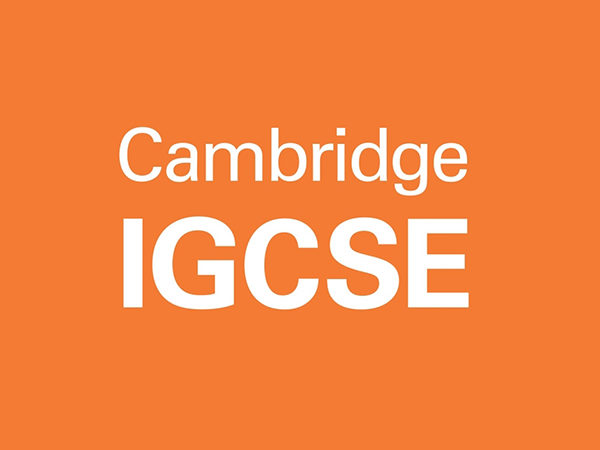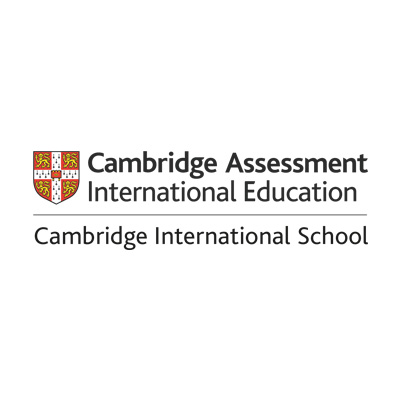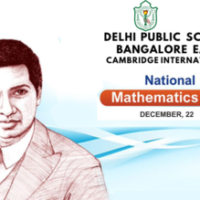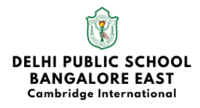
CAMBRIDGE PROGRAM
The Various Components
The International General Certificate of Secondary Education (IGCSE) is the world’s most popular international qualification & is administered by CAIE (Cambridge Assessment International Education) taken at the Class 10 level, similar to the Class 10 examinations of the CBSE and ICSE. IGCSE is a two-year programme starting at the Class 9 level. A student who has done his/ her early schooling from any other board can join the IGCSE programme at the Class 9 level. A student who has passed IGCSE is eligible for any +2 level qualification, like Class 12 CBSE/ ICSE or any international pre-university programme, like the IB Diploma, Advanced Placement Diploma (US), and A/AS Level & AICE (UK).
The CAMBRIDGE Program at DPS | EAST
Delhi Public School Bangalore, East started with the CBSE curriculum in our nascent years with a mission to providing a comprehensive education program for its students emphasizing the developmental needs of the child as a whole. Today we stand by our mission & take a step further to parallely adopt the IGCSE program. The thought is to introduce a world class curriculum to our students that is widely accepted and internationally significant while maintaining high academic standards. IGCSE is recognised by leading universities and employers worldwide, and is an international passport to progression and success. Developed over 25 years ago, it is tried, tested and trusted by schools worldwide. While the Program is international in outlook, it very much retains local relevance. The holistic and experiential nature of learning balances knowledge, understanding and skills, and ensures that students are well-prepared for other per-university programs.


Why Choose the Cambridge curriculum?
- IGCSE is one of the most sought-after and recognised qualifications in the world. It develops and encourages vital educational skills, including oral skills, investigative skills, problem solving, team work, recall of knowledge, and initiative.
- The IGCSE programme has worldwide status and credibility. It is recognised by the Association of Indian Universities (AIU) as being at par with CBSE, ICSE & State boards.
- Worldwide, it is delivered in schools in over 140 countries and is recognised by colleges and universities everywhere, more so in the UK and other Commonwealth countries.
- The IGCSE curriculum is balanced and lends an international perspective to studies. It also takes account of differing abilities of students.
- IGCSE students can take advantage of the Cambridge Checkpoint, a diagnostic service comprising of standardised tests, that pinpoints a student’s strengths and weaknesses in key curriculum areas.
FAQ’S:
Q1. What is CAIE?
- Cambridge Assessment International Education (CAIE) is a part of the world-renowned University of Cambridge, U.K. and is among the world’s leading providers of International qualifications and assessments.
- They are the oldest and the largest International Exam board, conducting 2.25 million exams a year in 160 countries.
- CAIE has been offering IGCSE (International General Certificate of Secondary Education), A & AS level (Advanced & Advanced Subsidiary respectively) qualifications.
- CAIE are also the providers of The Cambridge International Primary Programme (CIPP).
- The structure & content of CAIE Syllabus does not put too much stress on students but draws out successfully the best from them.
Q2. What is the Cambridge International Primary Programme (CIPP)?
- The Cambridge International Primary Programme (CIPP) is based on the most explicit learning standards that cover subject, personal and — uniquely — international understanding, the CIPP provides teachers and schools with Units of work around which to build a dynamic and exciting thematic curriculum for children.
- CIPP focuses on academics and personal development and the development of a global awareness or international-mindedness.
- Learning is active and engaging, and, above all, meaningful to children.
- The CIPP units of work are focused around themes of real interest to children and contain dynamic, exciting things for them to research and record.
- The curriculum contains specific learning goals for each stage of primary education. Each unit contains activities that focus on international issues. Each unit contains specific activities which require children to think about their study from an international perspective.
Q3. What are the benefits of CIPP?
- Foundation for Secondary education
Cambridge Primary aids identification of a learner’s strengths and weaknesses and can be used to support learning and development. It provides learners with excellent preparation so they can progress seamlessly into Cambridge Secondary 1 and beyond. - External benchmark
As an international programme, Cambridge Primary provides teachers with an external benchmark to inform their teaching and easily measure learners’ progress over time. It also enables detailed, structured reporting to parents. - International curriculum
Appropriate and relevant internationally, Cambridge Primary has been designed to be culturally sensitive. It includes top-quality teaching and assessment resources appropriate for teaching and learning in local and international schools. - Flexibility
Cambridge Primary complements a range of teaching methods and curricula. No part of the programme is compulsory and schools have freedom to choose the parts that best suit their situation.
Q4. What are the advantages of Cambridge curriculum?
- A profitable leap from the National Board to an International Level
- Based on the concept of ‘Learning by Doing’ ; helps in complete clarity of concepts
- Subjects that lead to all-round development
- Tests students’ knowledge, not their memory and speed
- Pedagogy is on ‘how to learn’ rather than ‘what to learn’.
- Offers syllabi which reflect local economies and cultures within a global context, hence ensuring that students gain a wide perspective while recognizing and valuing their own environment
- Develops key learning, problem-solving and ‘analytical’ skills by encouraging an active, critical and enquiry approach to study.
- The purpose of Cambridge IGCSE is to orient students to international methods of learning that give the child a wide scope to explore various dimensions of his intellect & creativity.
Q5. What does the IGCSE mean?
- The International General Certificate of Secondary Education (IGCSE) is a comprehensive two-year programme, spread over Class 9 and 10, leading to the final examinations taken at the Class 10 level.
- It is a globally recognized qualification, similar to the Class 10 examinations of the SSC, ICSE, CBSE, British GCSE, International GCE O Level examinations or the Middle Years Programme of the IB.
- All Indian Boards and Universities accept IGCSE as equivalent to SSC/ICSE/CBSE’.
- The IGCSE programme has worldwide status and credibility. In India, the course is delivered in over 130 schools with the number rising each year.
- Worldwide, it is delivered in schools in over 160 countries and is recognised by colleges and universities in India and everywhere, more so in the USA, UK and other Commonwealth countries.
Q6. Why should I enroll my child in an International curriculum?
- In today’s world need to create Global Citizens with awareness about responsibility towards humanity.
- Need to modernize the teaching methods and to capture the potential of a student.
- Employers look for versatile, risk takers, Analytical and out of the box thinkers with high degree of creativity.
- To develop a well- balanced and good communicator.
- Need to revise not only teaching but also learning methodology of the students.
Q7. Why should I enroll my child for Cambridge curriculum?
- Your child will be exposed to innovative learning methodologies compared to traditional systems of State and Central Boards. Many international universities prefer students trained through this methodology of education. IG schools are not just ideal for parents who wish to send their wards abroad for higher education, but for anyone who wishes his child to be a globally competent learner.
Q8. What does CAIE have to offer?
- Cambridge Assessment International Education (CAIE) lead the way worldwide in raising educational standards with the introduction of their IGCSE and A level study program.
- CAIE have structured their teaching methods with planning and precision to align the requirements at a global level.
- Quality assurance is provided with ongoing teacher training workshops and regular evaluation and support.
- It thus aims to be a world leader in offering students and parents the very best of modern education.
Q9. What happens to my child after IGCSE?
- A student who has passed IGCSE is eligible for any 10+2 level qualification like: Local Boards -Class 12 CBSE/ ISC /HSC. Or International pre-university programs like IBDP and AS/A levels(UK)
Q10. What are the advantages of IGCSE?
- It is the most sought-after and recognised qualification in the world.
- Involves a variety of assessment techniques to test oral and practical- skills, initiative and problem solving ability, application of skills, knowledge and understanding. Thus it does away with rote memory and mugging.
- Curriculum is balanced and lends an international perspective to studies.
- Students of grade 5 & grade 8 will appear the CAMBRIDGE CHECKPOINT EXAMS
- Subjects provided have a focused approach.
Q11. Does any other university accept IGCSE & A/AS LEVELS?
- The following is extracted from the notification provided by the Ministry of Human Resource Development website –
– As per the AIU (Association of Indian Universities). 5(five) passes at IGCSE in Grade A, B and C and minimum 2 (two) passes at A level examination of the British examining bodies is equivalent to +2 stage qualification which is the minimum eligibility requirement for admission to Bachelor degree programme at Indian Universities. - Recognitions according to CIAE can be found at:
http://www.cie.org.uk/qualifications/recognition - For more information please log on to:
www.cie.org.uk
Q12. Can a Cambridge student take on the challenge of Indian competitive exams such as IIT JEE, PMT etc.?
- ‘A’ level curriculum is more practical and application based. It enhances student’s knowledge, reasoning power and problem-solving abilities which are required to clear all professional entrance exams. The course content of Cambridge for the Sciences and Mathematics is in line with the prescribed syllabus of all India open entrance tests for Engineering or Medicine undergraduate studies. All IIT’s and other specialized institutes recognize Cambridge AS/A level.
Q13. What subjects should you take if you want to study Engineering/ Medicine?
- Physics, Chemistry and Math at the Higher Level are recommended for students interested in engineering, either in India or overseas. Physics, Chemistry, and Biology are required for studying medicine in India. Medicine in the UK requires 2 Higher Level sciences. Medicine in the US and Canada is a postgraduate degree.
Q 14. Are colleges in India ready for International curriculum?
- While A/AS level is fully recognized for entry into the Bachelor’s degree program in all higher education institutes in India, with growing awareness of the merits of the program more and more colleges are welcoming A/AS level students. Cambridge students are successfully pursuing their undergrad programs in some top colleges of the country such as: College of Vocational Studies, D.Y Patil College, St. Xavier’s,-Mumbai, HR College of Commerce- Mumbai, Wilson- Mumbai, Fergusson College- Pune, Lady Shri Ram College – Delhi, Loyola- Chennai, Stella Marie-Chennai, NIFT, Daulat Ram College, Gargi College, Indraprastha College for Women, Jesus and Mary College, Kamla Nehru College, Mahatma Gandhi Medical College, Maitreyi College, Osmania University, PGDAV College, Podar World College, Ramjas College, SRCC, NID, Manipal, and Sri Venkateswara College.
Q 15. How do AS/A level students fare in college acceptance in India?
- The Association of Indian Universities (AIU) recognizes Cambridge as a qualifying secondary school diploma for admission to Indian universities. The AIU also has a conversion formula to convert the Cambridge grading into percentage equivalents
Q16. What is a Checkpoint?
- Cambridge Checkpoint, a new and innovative diagnostic testing service, is a major landmark in the development of assessment services from UCIE.
- The tests cover all major areas of learning required in the first years of an international secondary education.
- Cambridge Primary Checkpoint is designed to help students learn by providing comprehensive feedback on their strengths and weaknesses in the key curriculum areas – English, Mathematics and Science.
- They are marked by Cambridge and provide schools with an international benchmark for learner performance.
- Each learner receives a statement of achievement and a diagnostic feedback report, giving invaluable information to the schools and building an additional trust in the parents about the feedback they receive.
Q17. What are the benefits of taking a Checkpoint?
- The diagnostic reports generated by Checkpoint enable us to:
- Tailor individual student’s learning programmes
- Monitor group and individual performance
- Provide information for reporting to parents
- Compare the performance of all students taking tests in that session
- Manage learning programmes within centers as students move between centers
- Predict performance in student’s formal examinations
- Every learner finds a competitive place in the global arena and connects with learners across the world.
Q18. Is staff well trained to conduct Cambridge programmes?
- Cambridge provides online and face-to-face training courses for their teachers so that they have complete knowledge and skills to deliver Cambridge curricula successfully. It is mandatory for every teacher to go through the training. Recruitment process of teachers is stringent with three rigorous steps which include – questionnaire session, demo classes and interactive session with subject experts. Recruited teachers will undergo intensive training. They will be exclusive to the IGCSE curriculum.
Q19. How are assessments conducted during Cambridge programme?
Cambridge Primary assessments start from Grade 3 and use internationally benchmarked tests. They give a detailed feedback about a child’s cognitive capabilities.
There are two Assessment Methodologies:
- (A) Cambridge Primary Progression Tests (Marked by School).
Cambridge Primary Progression Tests provide valid internal assessment of knowledge, skills and understanding in English, Mathematics and Science. The tests: enable learning to be assessed each year, provide detailed information about the performance of each learner for stages 3, 4, 5 and 6. It also enable teachers to give structured feedback to learners and parents, enable teachers to compare strengths and weaknesses of individuals and groups - (B)Cambridge Primary Checkpoint (Marked by Cambridge Examiners)
The tests are marked in Cambridge and provide schools with an external international benchmark for learner performance. Each learner receives a statement of achievement and a diagnostic feedback report, giving schools detailed information and to parents that trust in the feedback they receive.
Q20. What is the class strength?
- The maximum class strength is 24 students
Q21. Can the student be shifted back to CBSE?
- Yes.


































